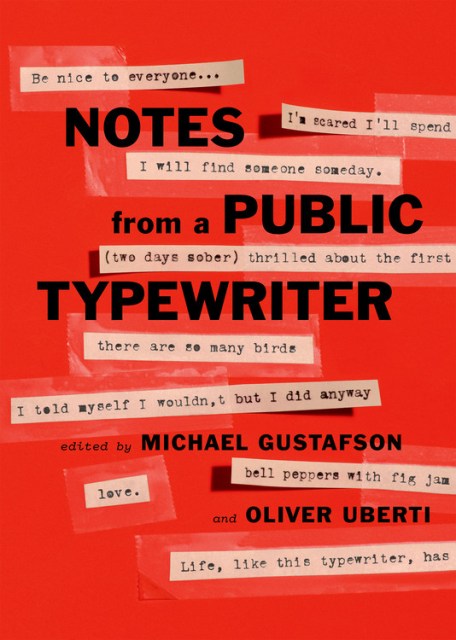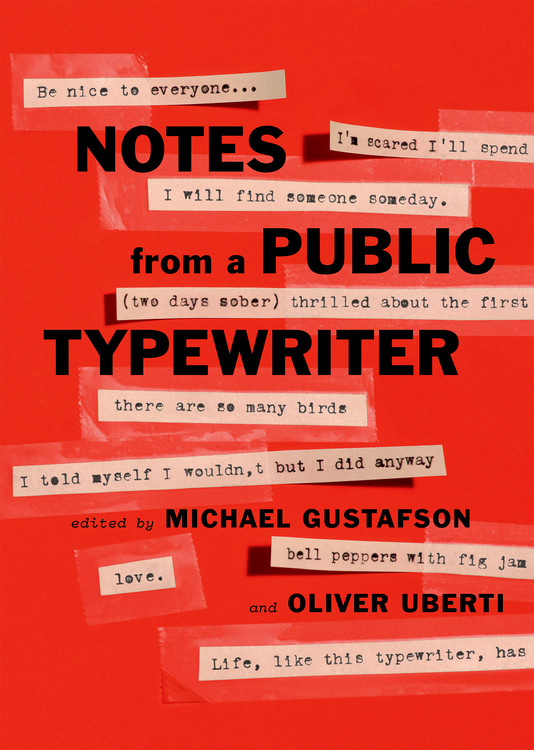By clicking “Accept,” you agree to the use of cookies and similar technologies on your device as set forth in our Cookie Policy and our Privacy Policy. Please note that certain cookies are essential for this website to function properly and do not require user consent to be deployed.
Notes from a Public Typewriter
Contributors
Edited by Michael Gustafson
Edited by Oliver Uberti
Formats and Prices
- On Sale
- Mar 27, 2018
- Page Count
- 160 pages
- Publisher
- Grand Central Publishing
- ISBN-13
- 9781538729113
Price
$18.00Price
$23.00 CADFormat
Format:
- Hardcover $18.00 $23.00 CAD
- Audiobook Download (Unabridged)
This item is a preorder. Your payment method will be charged immediately, and the product is expected to ship on or around March 27, 2018. This date is subject to change due to shipping delays beyond our control.
Buy from Other Retailers:
When Michael Gustafson and his wife Hilary opened Literati Bookstore in Ann Arbor, Michigan, they put out a typewriter for anyone to use. They had no idea what to expect. Would people ask metaphysical questions? Write mean things? Pour their souls onto the page? Yes, no, and did they ever.
Every day, people of all ages sit down at the public typewriter. Children perch atop grandparents’ knees, both sets of hands hovering above the metal keys: I LOVE YOU. Others walk in alone on Friday nights and confess their hopes: I will find someone someday. And some leave funny asides for the next person who sits down: I dislike people, misanthropes, irony, and ellipses … and lists too.
In Notes From the Public Typewriter Michael and designer Oliver Uberti have combined their favorite notes with essays and photos to create an ode to community and the written word that will surprise, delight, and inspire.
Newsletter Signup
By clicking ‘Sign Up,’ I acknowledge that I have read and agree to Hachette Book Group’s Privacy Policy and Terms of Use






